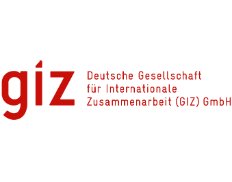Print

Support to the Comprehensive Africa Agriculture Development Programme (CAADP)
Details
Locations:South Africa
Start Date:Jan 1, 2007
End Date:Dec 31, 2016
Sectors: Agriculture & Rural Development, Food Systems & Livelihoods, Organizational development
Categories:Consulting services
Funding Agencies:
Date posted:Jul 18, 2013
Description
Securing Africa’s food production.
Client: German Federal Ministry for Economic Cooperation and Development (BMZ).
Country:Africa, transnational (located in South Africa).
Political executing agency:African Union (AU).
Scenario
The African Union’s Comprehensive Africa Ag- riculture Development Programme (CAADP) constitutes a reform framework for better, evidence-based and stakeholder-driven strategic planning, more coherent policies and increased and reasonably allocated investments in the agricultural sector. The initiative aims at reaching and sustaining a higher path of economic growth through agriculturally led development, thereby contributing to attaining the first Millennium Development Goal of halving hunger and poverty in African countries. The African Union Commission (AUC) supports the programme’s implementation through policy coordination, harmonisation and political leadership, whereas the New Partnership for Africa’s Development (NEPAD) Planning and Coordinating Agency (NPCA) provides technical leadership. African Union member states have agreed on visions and strategies, so-called ‘CAADP Compacts’ that lead to the elaboration of National Agricultural Investment Plans (NAIPs) for the implementation of the agricultural-reform agenda at country level.
NPCA and the AUC’s Department of Rural Econ- omy and Agriculture support member countries in their implementation of CAADP; however, inadequate human and financial resources still challenge the process. Capacity development and non-state actor involvement are needed to implement the investment plans successfully, as is the practical application of reform policies in agribusiness. Technical vocational education and training in agriculture are, moreover, essential for achieving CAADP’s development objectives; national education and training systems are not yet able to meet this demand, however.
The negative effects of climate change further threaten achievements in agriculture development and income generation, particularly for the majority of small-scale farmers who depend on agriculture for their livelihoods. These challenges have raised expectations of CAADP’s lead institutions with regard to their technical backstop and support of countries and Regional Economic Communities (RECs) in achieving their agricultural development goals.
Project
Against this backdrop, the Deutsche Gesell- schaft für Internationale Zusammenarbeit (GIZ) GmbH, on behalf of the German Federal Ministry for Economic Cooperation and Development (BMZ), has been supporting NPCA in coordi- nating and implementing CAADP since 2007. Cooperation centres on developing concerted and coherent policies and strategies for sustain- able agricultural growth, the implementation of NAIPs, qualification and training in the area of agriculture, and adaptation to climate change. In the field of policy advice, GIZ assists in strengthening the roles and capacities of AUC, NPCA and RECs in order to improve the policy and institutional framework for the implemen- tation of CAADP at country level. The programme’s multi-level interventional approach targets reform processes at pan-African, regional and country level. At national level, GIZ supports the priority partner countries of German development cooperation. Thematic focus is on the development of agribusiness and on strengthening non-state actors in the implementation of CAADP. Private investors are also systematically involved in implementing the National Agricultural Investment Plans.
In the area of qualification, GIZ’s support aims at improving conditions for CAADP’s implementation through the enhanced promotion of agriculture-related qualification and vocational training. To this end, capacity-building measures will be developed for national actors involved in the process, with specific focus on implementing priority value chains.
German development cooperation has allocated increased technical assistance to CAADP lead agencies in order to facilitate agricultural adaptation to climate change. GIZ’s support focuses on strengthening the roles and capacities of AUC and NPCA to ensure their most efficient use of the existing technical and financial resources. As a result, the lead institutions will, in future, be able to support African countries in the coherent implementation of climate-smart agricultural development, and yield their experiences in international climate negotiations.
Impact
With GIZ’s support, CAADP has made vital contributions to developing robust investment plans. Thirty African countries have signed CAADP Compacts following national multi-stakeholder round-table processes. NAIPs are being implemented in 26 countries. The quality of political leadership and guidance provided by the African Union Commission to member states, regional economic communities and development partners, as well as the quality of planning and programme implementation, has improved. As a result of the reform process, the output of maize, potatoes and rice quadrupled in Rwanda between 2007 and 2010, to name just one example. Between 2003 and 2010, seven countries invested more than 10 per cent of their domestic budgets in the agricultural sector.
Continental and regional knowledge-sharing has been strengthened through multi-stake- holder conferences such as the CAADP Africa Forum and Partnership Platform. Furthermore, a capacity-development framework for the NEPAD–CAADP unit has been elaborated, and national CAADP focal points and country teams have been trained. Today, development partners are more willing to back CAADP, and countries have allocated additional resources to implementing NAIPs. In 2009, the G8 com- mitted over 22 billion US dollars to agricultural development in Africa. In addition, the trend of declining agricultural spending by African governments has been brought to a halt and even slightly reversed in parts of Africa.

